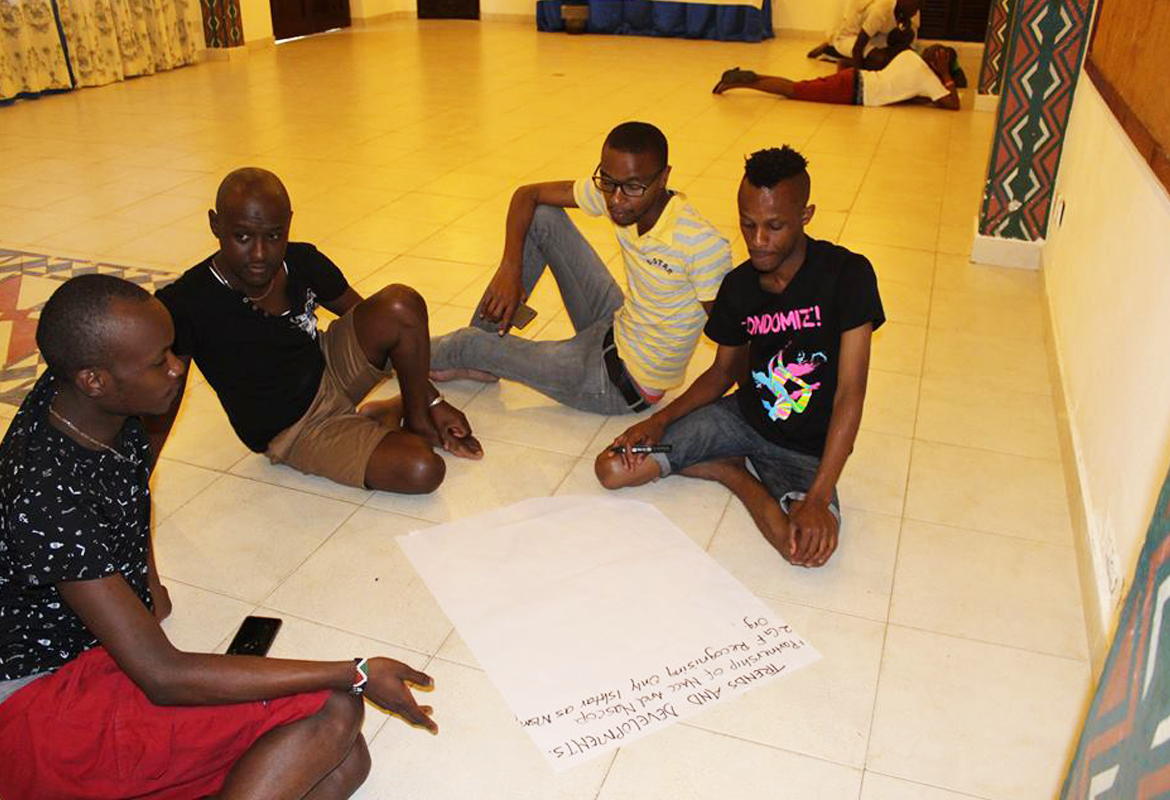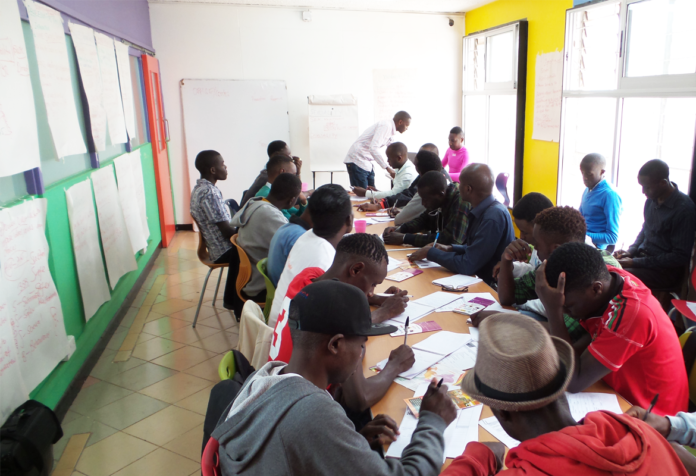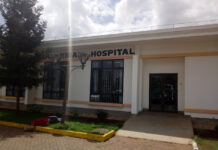By Roseleen Nzioka
Nairobi, Kenya: Festus Ibanda Kisa is a sexual and gender minority activist and sexual reproductive health and rights advocate for Q-Initiative Eldoret, where he was a Programme coordinator since 2013 and is now the Director.
I first met Festus in 2016 when he gave a talk to a group of women journalists in Nairobi about the work he does and the plight of the LGBTQ community in Kenya. This was part of a series of media and public engagements that the LGBTQ community had undertaken to sensitize Kenyans on their human rights.
Many LGBTQ individuals experience barriers to healthcare access and may delay seeking care out of fear of homophobia, discrimination, and receiving inferior care as a result of their sexual orientation or gender identity.
While the LGBTQ community is diverse, significant health disparities that broadly impact this population have been identified through various local and international research by organizations and individuals engaged in Sexual and Reproductive Health Rights.

Studies have demonstrated that LGBTQ youth are more likely than their heterosexual peers to experience harassment and violence at school/college; more likely to abuse alcohol and drugs; at higher risk for sexually transmitted diseases (STDs), HIV/AIDS, and unplanned pregnancy; less likely to seek preventive health services and more likely to attempt suicide.
Festus has a background in social work, HIV testing, and counseling, human rights for sexual minorities. He is passionate about equality and non-discrimination, increased awareness on the sexual reproductive health and rights of lesbians, gays, and bisexuals.
He says the protection and upholding of the human rights of sexual and gender minorities, creation of safe social spaces for sexual minorities, and changing the narrative of sexual and gender minorities (from that of victims and oppressed to dignified citizens involved in nation-building) are his priorities.
When Festus was the liaison officer for key populations with AMPATH Kenya from 2015 to 2018, he created a database for Men who have sex with Men (MSM) in Uasin Gishu County, distributed prevention commodities to them (condoms, etc.), organized health outreaches where HIV testing and STI screening were carried out and did follow up on the clients.
They conducted health education sessions and referred clients to the AMPATH facility for testing or counseling. He also sensitized health care workers on how to provide MSM friendly services.
Various local and international LGBTQ organizations agree that LGBTQ adults experience high rates of smoking and substance use, heart disease, stress and mental health disorders, and intimate partner violence.
Medically, studies show that gay, bisexual, and other men who have sex with men (MSM) are at increased risk for cancers, including prostate, testicular, colon, and anal cancers; eating disorders; and STDs/HIV.
Lesbian, bisexual, and other women who have sex with women (WSW) are more likely than heterosexual women to be obese and have higher rates of cancers, including breast and cervical cancers.
To understand the uphill task that Kisa and other advocates for LGBTQ rights face it is important to look at the laws that work against them as human beings here in Kenya.
The Constitution of Kenya, which took effect 27 August 2010, does not expressly protect the rights of LGBTQ persons because, according to the experts who drafted the constitution, a majority of Kenyans would have rejected the constitution in the referendum to adopt it.
Sex acts between men are illegal under Kenyan statutes and carry a maximum penalty of 14 years’ imprisonment, except 21 years in certain aggravating circumstances. Sex acts between women are not mentioned specifically in those statutes, although it is arguable that the gender-neutral term “person” in Section 162 of the Penal Code includes women.

According to a report by Frontline Aids, a court case, commonly known as ‘Repeal 162’ after one of the sections of the law in question, was filed by the National Gay and Lesbian Human Rights Commission (NGLHRC).
The case is now at the Court of Appeal. NGLHRC sees Kenya as a regional and continental leader and posits that a positive ruling has the potential to impact how LGBT people are treated across Africa.
“The law has mostly been used to oppress us,” says Solomon Wambua, activist and coordinator of the Key Populations Consortium.
“When you are criminalized, someone can beat you up but you cannot go to the police because you are seen as a criminal. You cannot go to the hospital for fear of outing yourself. Access to health services is limited in so many ways,” Wambua is quoted by Frontline Aids.
Wambua’s assertion of the morbid fear of going to the hospital by an LGBTQ person is the crux of the matter when it comes to negative healthcare-seeking behavior.
In 2017 Kenya opened the first gay health clinic in Nairobi. The clinic, Ishtar is a full-fledged community health care clinic focused on health issues pertaining to men who have sex with men (MSM). Ishtar also has the distinction of being the first health care clinic in Kenya run by gay men that serves a population primarily of gay men.
Staffed by gay men and members of the community, Ishtar provides a host of preventive services, including health education, HIV counseling and testing, screening and treatment for sexually transmitted infections, and advice and open forum discussions.
Ishtar has not been able to give antiretroviral therapy to those people who are HIV-positive, due to limited capacity but they do refer their members to either an NGO or a government facility they have negotiated with.
Many times individuals refuse to go to the referral out of fear of judgment or discrimination.
However, there may be hope for the LGBTQ community as Kenya has made a commitment to achieve Universal Health Coverage (UHC) by 2022.
According to a research titled “Health Systems and Reform” published by Taylor & Francis Online, to achieve UHC, countries must expand the range of services they provide to their citizens, expand population coverage with a prepayment mechanism, and reduce the proportion of direct costs that citizens pay to access health care services.
The research says that currently, Kenya has a mixed health financing system that is financed by revenues collected by the government (national and county) through taxes and donor funding, the National Hospital Insurance Fund (NHIF) through member contributions, private health insurance companies through member contributions, and out-of-pocket spending by citizens at points of care.
In efforts to enhance the NHIF’s capacity to deliver the promise of UHC to Kenyans, the Kenyan government has introduced several reforms in the last eight years.
The reforms are aimed at the same objective: increasing population coverage with the NHIF to increase access to quality health care services while offering protection from the adverse effects of out-of-pocket payments.














